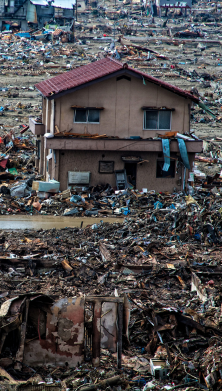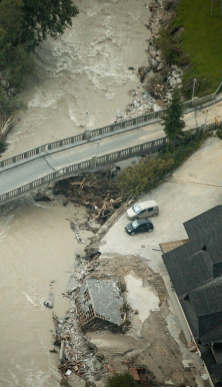This article is part of the
Global claims review 2022
Contingent business interruption (CBI) claims reached a new level over the past year, with the number of claims far in excess of recent years, according to Scott Inglis, Head of Global Practice Group for Property and Business Interruption Claims at AGCS.
The sharp increase exemplified the growing interdependence and complexity of corporate supply chains, which were hit by a combination of pandemic-related disruptions, extreme weather, and, more recently, the war in Ukraine.
For example, the ‘Texas Big Freeze’ in the US during February 2021 caused massive disruption to infrastructure, with many companies forced into temporary shutdowns by widespread power outages. Record freezing temperatures caused by Winter Storm Uri had cascading effects on companies and services reliant upon power, including water, transport and medical services.
The event is estimated to have caused economic losses up to $150bn [1], while Uri caused $15bn [2] in insured losses nationwide. Less than a month later, a fire at a semiconductor plant in Japan added to the growing global shortage of microprocessors, sending a ripple effect through global supply chains, hitting production in the automotive and electronics industries. The automotive sector was again hit with supply chain problems from the conflict in Ukraine, with the country being an important supplier of parts.
Complex global supply chains are creating opaque and complex exposures, with many companies reliant on a small number of key suppliers for materials, parts and services, explains Inglis. The interconnectivity of supply chains results in more CBI exposures and can have a substantial impact on various industries, sometimes in excess of $1bn or more.
Fires, natural catastrophes, cyber-attacks and conflicts have added to existing strains on supply chains caused by the pandemic, with shutdowns at manufacturing plants and ports in China, delays to shipping and labor shortages. The ‘Texas Big Freeze’ in particular led to a number of large CBI claims that AGCS was involved with, as companies took several months to ramp up production following initial power outages.
“The corporate world is now so interconnected and complex, businesses rely on each other for goods, services and infrastructure,” says Inglis. “Underwriters need to understand accumulations of exposures within corporate distribution and value chains, as well as the impact of disruption and actions taken to mitigate them.”
References
[1] AccuWeather, Damages from Feb. winter storms could be as high as $155bn, March 6, 2021
[2] Swiss Re, Global insured catastrophe losses rise to USD 112 billion in 2021, the fourth highest on record, Swiss Re Institute estimates, December 14, 2021
Picture: AdobeStock















